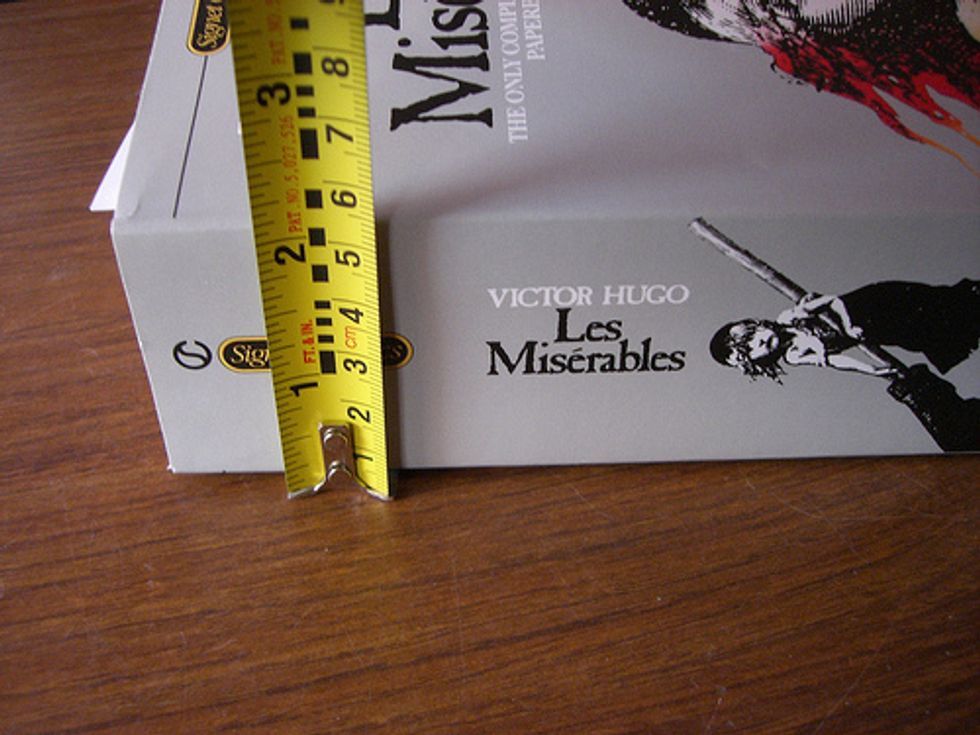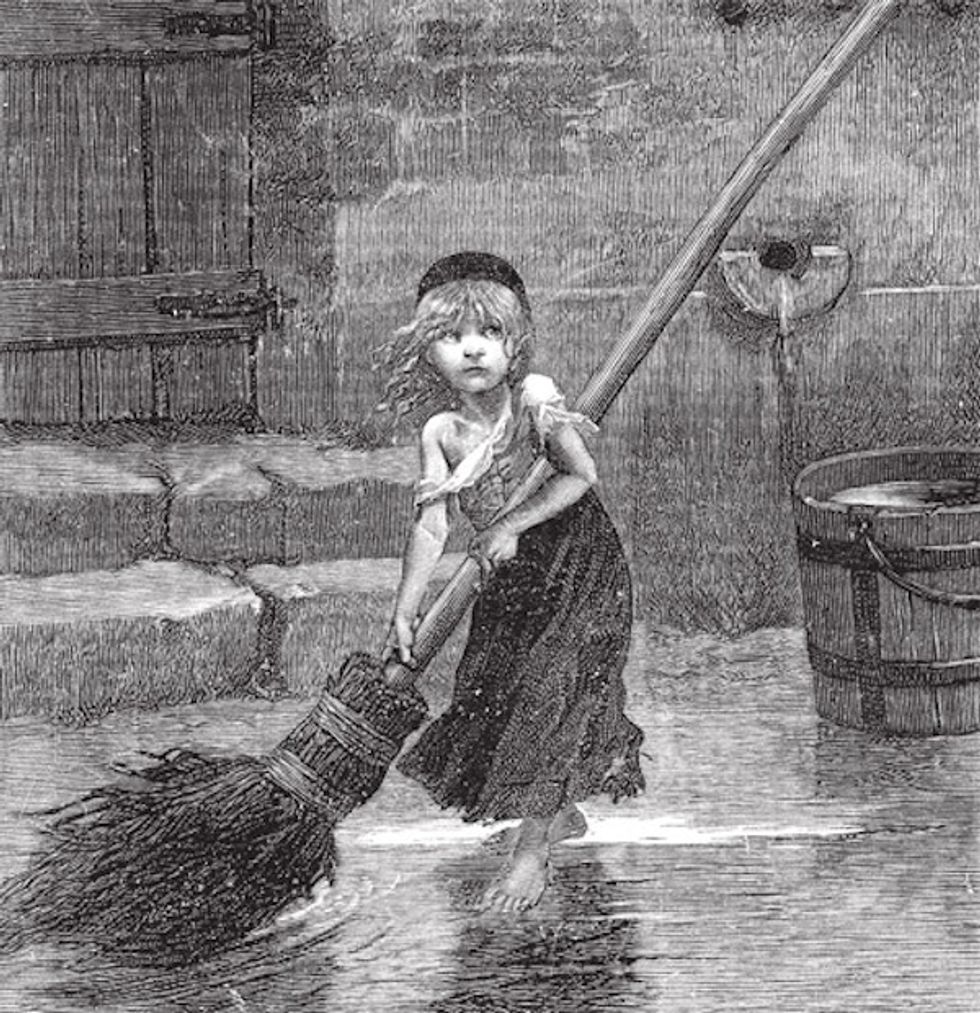(Warning: spoilers!)
Most people recognize Les Misérables from the hit musical, or the film version that came out in 2012. Based on Victor Hugo's epic novel from 1862, it explores a variety of heavy and intricate subjects, such as poverty, rebellion, the justifications of law and the shortcomings of idealism. While the musical is well loved, both within and outside the theater community, the book can be intimidating for some – and it's easy to see why:

Fans don't lovingly call it "the brick" for nothing.
Still, if you're willing to spend the time and read the book, it is absolutely worth it. Here are a few reasons why:
1. It gives historical context.
It's a common misconception that Les Misérables takes place during the French Revolution (like, the French Revolution). It actually doesn't – it's set during the June Rebellion of 1832, decades after the French Revolution ends. Though this is mentioned through titles in both the musical and film, it's easy to miss.
Not only does Hugo describe what took place during this rebellion (albeit with fictional characters representing the real students who fought in it), he describes the social and political forces leading up to it. The musical does allude to the extreme poverty and working conditions people faced at the time ("At The End of the Day"), but the book truly sets the scene and gives a more comprehensive understanding of the state of France at the time. If you're a history buff, definitely check it out.
2. It explores its characters in depth.
Because of the nature of musicals, a two or three-hour version of Les Misérables cannot possibly highlight all the personality traits, backgrounds and quirks of each and every character. Cosette is just a generic ingenue whose character remains stagnant throughout the musical. Javert has an unhealthy obsession with the actions of a single ex-convict – enough that he would commit suicide over them. Everyone who fights in the revolution is essentially a nameless, faceless student.
In the book, we learn that Random Student #3 has a name, a background, a personality, relationships and interests (Hugo dedicates an entire chapter to introducing each of the students involved in the revolution.) Cosette is actually quite lovely and three-dimensional; she's adventurous and curious about her past, and even has a sarcastic side. Every character's actions come from an honest place, and we get a true understanding of their emotions and motivations.
3. It explores the relationships between characters more.
"The bishop had caused the dawn of virtue on his horizon; Cosette evoked the dawn of love." -Vol. 2, Book 4
In the book version of Les Misérables, Valjean experiences two major cathartic moments – one, when the Bishop gives him the silver candlesticks, and two, when he adopts Cosette. The relationship between Valjean and Cosette is heavily downplayed, even downright neglected, in the musical (although the film version amends this slightly by adding "Suddenly" to the score.) The book emphasizes how important and necessary Cosette is in turning Valjean into the person he becomes.
There are plenty of other examples where relationships in the book go much deeper than the musical lets on. For example, in the musical, we see that Marius and Cosette fall in love at first sight. We don't get to see all the late nights they spend talking into the garden, just getting to know each other. In the musical, Eponine is doe-eyed and lovestruck, and her character doesn't go much deeper than obsessing over Marius. We don't see the complicated relationship Marius has with her family.
4. It fixes plot holes and is less rushed than the musical.
How does Valjean manage to evade Javert for so long and recreate his identity so many times? How could the police falsely convict someone when Valjean has a brand upon his skin? How do the Thenardiers, Javert and Valjean all end up in Paris in 1832 – by coincidence? All of these are addressed in the book.
Also, though it's lengthy, the pacing in the book is much better than the musical, and especially the film. The musical tries to cram as much plot as possible into a short amount of time, and that's not an issue at all in the book.
5. It's absolutely beautiful.
The story is astonishing, it's so well written, and the characters live and breathe. You'll cry at some parts, you'll laugh at others, and you'll be outraged at others. Les Misérables is a masterpiece, and I couldn't recommend it more.





















